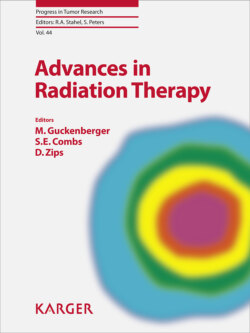Читать книгу Advances in Radiation Therapy - Группа авторов - Страница 16
На сайте Литреса книга снята с продажи.
Cancer Vaccines
ОглавлениеThe concept of anticancer vaccines is based on the fact that mutations in the cancer cell genome will lead to abnormal proteins and thus abnormal peptides presented on MHC-I molecules on cancer cells. When sensitised by vaccination the immune system might be able to recognise the altered epitopes and eradicate the tumours. The 2 main challenges for vaccine design are the choice of the antigen (e.g., dendritic cell-based approaches, peptides, whole attenuated tumour cells, RNA-based approaches) and the choice of the adjuvant required for the costimulatory signals to induce effective immune responses [25]. In addition, the strategies might differ for preventive approaches and the therapeutic setting. Cancer prevention by vaccine has become standard for virus-associated cancers, most prominently for cervical cancer caused by certain HPV (human papilloma virus) strains [26], but has also been discussed for high-risk populations for breast cancer and gastrointestinal malignancies [27, 28]. Therapeutic peptide cancer vaccines have been tested for minimal residual disease in prostate cancer [29] and in advanced renal cell carcinoma [30]. Sipuleucel-T, a dendritic cell-based vaccine has been FDA approved in castration-resistant prostate cancer [31, 32].
